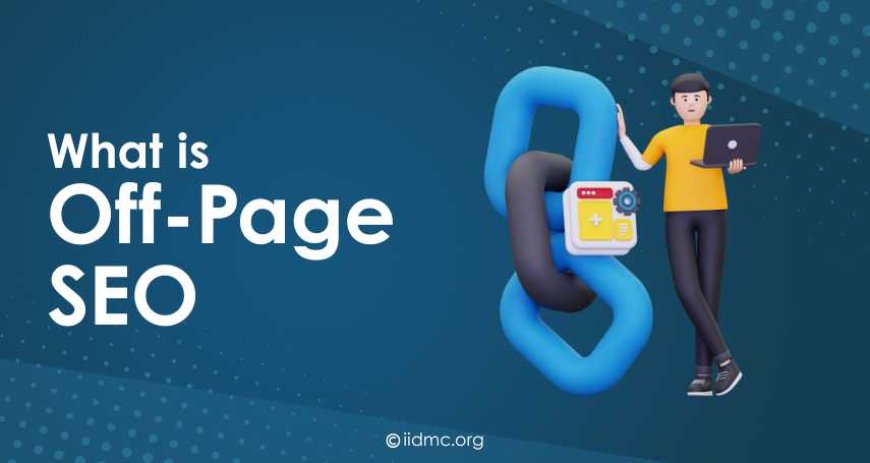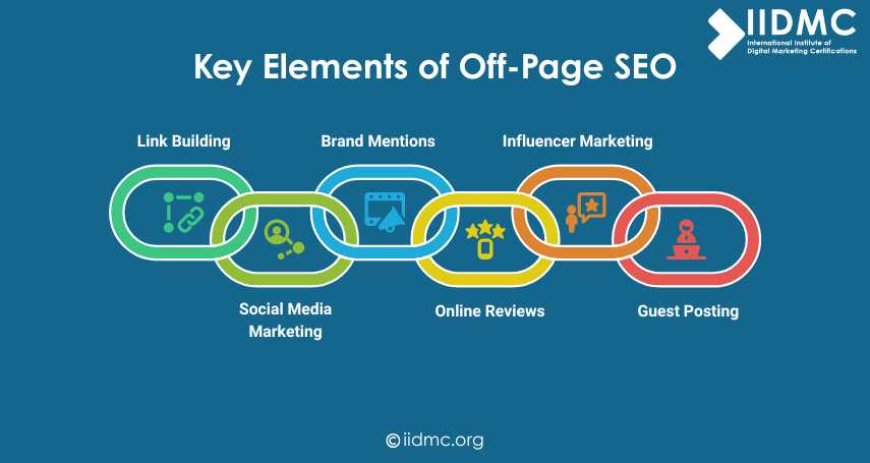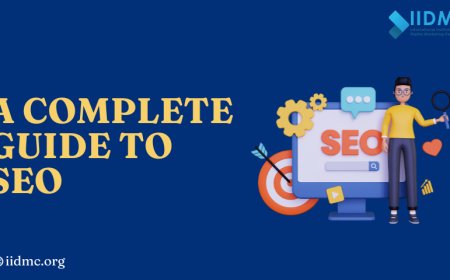What is Off-Page SEO?
Learn what off-page SEO is and how it helps improve your website’s Google ranking through backlinks, social signals, and online reputation.

Most people focus on content, titles, and keywords to improve their website's visibility on Google. That’s what we call on-page SEO. But there's a whole other side that plays a critical role in how search engines rank your site—off-page SEO.
From my experience working with websites and helping businesses grow online, I’ve seen how this builds credibility, earns trust, and drives real results. It's about what others say about your site, not just what’s on it. Let me break it down in simple terms so you can apply it confidently to your own website.
What is Off-Page SEO?
It refers to all the actions you take outside of your website to improve its position on search engine results pages (SERPs). It mainly involves getting links from other websites, building your brand reputation, and increasing your website's authority and trustworthiness.
This is everything you do beyond your own website to help it rank higher on Google.
Why is Off-Page SEO Important?
The goal of search engines like Google is to present users with the most reliable and excellent websites. Google considers some variables when determining which websites should rank highest. How other websites discuss and link to your website is one of the most important things.
Many high-quality connections from reliable websites on your website indicate to Google that your material is valuable. Higher rankings and more traffic to your website may result from this.
Even the best content might not rank highly in search results if off-page SEO is weak.
Key Elements of Off-Page SEO
Let’s take a closer look at the main activities involved in this.

Link building is the most important part of this. It involves getting other websites to link back to your website. These links are called backlinks.
Google sees backlinks as "votes" for your website. The more quality votes you have, the better your chances of ranking high.
There are different types of backlinks:
-
Natural links: These are links provided by other websites without your request. For example, if someone finds your content useful, they might link to it in a blog post.
-
Manual links: These are links obtained by contacting other website owners or bloggers and asking them to connect to your content.
-
Self-created links: These are links that you make on your own, such as when you publish links to your website on blogs, forums, or directories. These are typically less useful and, if used excessively, may harm your SEO.
2. Social Media Marketing
Even though social media links may not necessarily count as direct backlinks, being active on networks such as Facebook, Twitter, Instagram, and LinkedIn can help you gain online awareness.
Social media sharing can increase brand visibility, traffic, and opportunities to obtain backlinks from other websites.
3. Brand Mentions
Sometimes, your website or business name may be mentioned on other websites without a link. These are called brand mentions.
Search engines can recognize brand mentions and consider them as a sign of trust and popularity. The more your brand is mentioned online, the more likely Google is to trust your site.
4. Online Reviews
Reviews on websites like Google My Business, Yelp, and Trustpilot can also impact your off-page SEO. Good reviews help build trust and influence how your business appears in local search results.
Encourage happy customers to leave positive reviews, and always respond to negative reviews professionally and helpfully.
5. Influencer Marketing
Gaining useful backlinks and expanding your audience are two benefits of collaborating with industry influencers. Your online reputation can be improved and more traffic can be generated when an influencer mentions your brand or promotes your content.
6. Guest Posting
Guest posting means writing articles for other websites in your niche. In return, you usually get a backlink to your website.
This is a great way to build authority, reach new audiences, and improve your SEO.
How to Build High-Quality Backlinks
Not all backlinks are the same. A single link from a high-authority website can be more valuable than dozens of links from low-quality sites. Here are some tips to get better backlinks:
-
Make excellent, practical content that people want to link to.
-
Reach out to bloggers and website owners in your industry.
-
Use tools like Ubersuggest, SEMrush, or Ahrefs to identify backlink chances.
-
Write guest blogs for relevant websites.
-
Add your website to trusted directories of businesses.
-
Replace broken links on other websites with your information.
Common Off-Page SEO Mistakes to Avoid
Here are some things you should avoid when doing this:
-
Purchasing backlinks: This is against Google's guidelines and can result in penalties.
-
Using spammy links: Links from irrelevant or low-quality websites might lower your search engine rankings.
-
Overuse of exact match anchor text: This appears unnatural and may raise a red alert with Google.
-
Choosing quantity over quality: Having a few numbers of high-quality backlinks is preferable to having hundreds of low-quality ones.
Off-Page SEO vs On-Page SEO
Let’s quickly compare the two:
|
Feature |
On-Page SEO |
Off-Page SEO |
|
Done on your own website |
Yes |
No |
|
Involves content and HTML |
Yes |
No |
|
Includes backlinks and external signals |
No |
Yes |
|
Examples |
Keywords, meta tags, headings |
Link building, social media, brand mentions |
Both on-page and off-page SEO are important and should work together to help your website rank better.
How Long Does Off-Page SEO Take to Work?
It takes time to do this. Gaining backlinks, improving your internet reputation, and establishing trust take time. Real results could not be seen for a few weeks or even months.
Remain consistent and patient. Your efforts will eventually be rewarded.
Tools to Help With Off-Page SEO
Here are some helpful tools to support these efforts:
-
Ahrefs: Excellent for analyzing backlinks.
-
SEMrush: Helps in link development and competitive analysis.
-
Moz Link Explorer: Monitors your profile of links.
-
Google Alerts: Notify you when someone mentions your brand.
-
BuzzSumo: Locate influential people and well-liked material in your field.
The authority, credibility, and visibility of your website can all be increased by using it. Even while it could need some time and work, the long-term advantages make it worthwhile.
Put your attention on producing worthwhile material, establishing sincere connections, and gaining the trust of other websites. Search engines will eventually provide you with more organic traffic and better ranks.
Keep in mind that search engines are only one aspect of effective SEO. The goal is to have a powerful, beneficial, and reliable online presence. This is all about that.





























